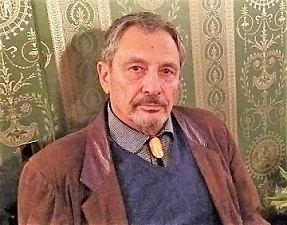Editor's note
International Internet Magazine. Baltic States news & analytics
Friday, 26.04.2024, 22:42
German Council Presidency in pandemic time
 Print version
Print version |
|---|
The focus of the German Presidency is mainly on the
concentrated efforts by the EU institutions and the member states to overcome
the COVID-19 crisis; hence the Presidency’s motto: “Together for Europe's recovery”. However, the “German team”
has taken into account some other though not less urgent issues, such as the
EU-US and global economic and political relations, the transitional measures in
the states towards sustainability, as well as the security challenges in
northern Europe and the Baltic Sea Region, etc.
German government has already prepared financial means in the
“post-pandemic exit strategy”, which
(among other things) included a Franco-German initiative for a €500 billion
“recovery fund” aimed to support to the most affected sectors and regions in the
EU states. Therefore, one of the main priorities during the Presidency would be
reaching a consensus on the revised Multiannual Financial Framework (MFF) for
the next seven years with “recovery means” to allow the European Commission to
borrow necessary resources on the global financial markets.
Presidency’s strategy
The German
program is based on the following guiding
principles:
- overcoming the
consequences of the coronavirus crisis for the long-term as well as economic
and social recovery,
- a stronger and
more innovative Europe,
- towards a “fair”
and sustainable Europe,
- increasing European
security and common values, and
- making a strong
Europe in the world.
Source: German
Presidency’s official website at:
https://www.eu2020.de/eu2020-en/aktuelles/article/-/2357724
The presidency of the Council of the European Union (or just
“the Council”) rotates among the EU member states every 6 months. During the
6-month period, the presidency chairs meetings at every level in the Council while
helping to ensure the continuity of the European integration process in the
Council of Ministers.
Troka’s common program
However, the member states holding the presidency work
together closely in groups of three, called “trios” or trilogies; the system
which was introduced by the Lisbon Treaty in 2009. As a rule, the trio sets
long-term goals and prepares a common agenda determining the topics and major
issues that is addressed by the Council over 18-month period; the present
program was adopted in November 2018.
More in: http://data.consilium.europa.eu/doc
On the basis of this programme, each of the three countries
- the current trio is made up of the presidencies of the Romania, Finland and Croatia
– is preparing its own more detailed 6-month program.
Reference to: https://www.consilium.europa.eu/en/council-eu/presidency-council-eu/
That is why the key feature throughout the three
Presidencies are: the European “green deal”, the EU’s “digital future”, the Research
and Innovation (R&I) program, as well as implementation of the European Action
Plan on Circular Economy, the new jobs and skills program, as well as the
general measures to increase the member states’ competitiveness, etc.
Source: “Taking forward the Strategic Agenda: 18-month
Programme of the Council”-1 July 2020 - 31 December 2021; in:
https://data.consilium.europa.eu/doc/document/ST-8086-2020-REV-1/en/pdf
Towards ”future of Europe”
German Presidency has an important task to complete
following strong initiatives to make the EU governing system more modern,
visible and meaningful to citizens’ daily lives.
In this regard, a conference on the “Future of Europe” (to
end up in mid-2022), would be another “political priority”; in fact, it was French and German governments that
initiated in November 2019 the idea of a Conference
on the Future of Europe.
The idea was supported by the Commission and the European
Parliament, with an aim of sketching up short- and long-term goals for the EU’s
future with the necessary reforms in European integration; in January 2020, the Parliament adopted a
resolution setting out its vision for the Conference with 494 votes for, 147
against and 49 abstentions (out of nine Conference’s working group four members
are from Germany). It has to be noticed, however, that the conference’s idea
stems from a previous Commission’s College: it was adopted in a White Paper
on the Future of Europe in March
2017.
Source: https://ec.europa.eu/commission/future-europe/white-paper-future-europe_en
In the next six months, much will depend on the Germany’s
presidency method and style; as the leaders of the Franco-German Institute put
it: to exercise “its responsibility for Europe” Germany would have to explore its
leadership abilities in the continent, something that the member states are
both asking for and afraid of…
Source: https://www.robert-schuman.eu/en/doc/questions-d-europe/qe-565-en.pdf











